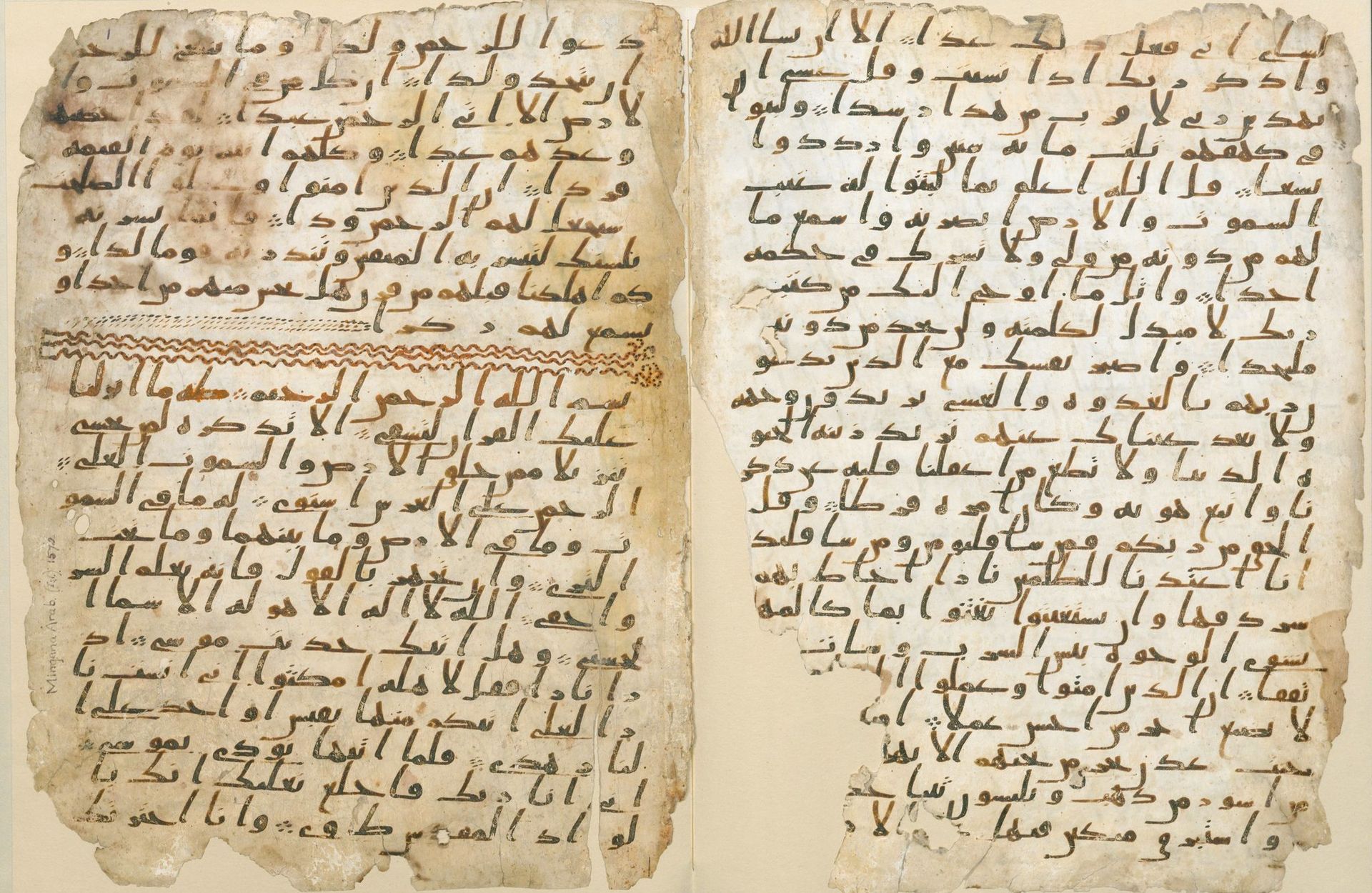The angel Gabriel informed the illiterate Muhammad to recite the Quran. The words were captured in the chapter Al-Alaq.

In the name of Allah, the Entirely Merciful, the Especially Merciful.
Muslims begin almost everything they do with this line, including eating, traveling, and business dealings.
The Quran is not organized in chronological order of revelation. Instead, it was compiled according to an order of recitation described by the prophet. Many of the beginning Surah's are long, and many at the end are shorter. In addition, the book is also organized into 30 sections of equal parts. This is useful for those who are reciting the Quran during the month of Ramadan. Each column in the visualization represents a different section.

In Islam, Muhammad, Jesus, Moses, and all the prophets are considered non-divine humans who deliver the message of God to the believers. Muslims believe in the virgin-birth of Jesus, but the Quran is clear that he was not divine and was not the son of God. That doesn't stop Jesus from playing a central role in Islam. Jesus is mentioned by name 25 times in the Quran, while Muhammad is mentioned only 4 times by name.
The English translation used for this is Sahih International. The search functions will look through the English translations to find a match. In the case of the 99 names, the Ayas which are referenced are hard-coded and taken from this wikipedia page which compiles the information from various sources. The arabic text is loaded from: Tanzil.net, and the english translation is loaded from: quran cloud.
A number of free icons were used in this webpage, their licenses are shown below. Icons made by Freepik from www.flaticon.com is licensed by CC 3.0 BY Icons made by Freepik from www.flaticon.com is licensed by CC 3.0 BY Icons made by Victor Erixon from www.flaticon.com is licensed by CC 3.0 BY Icons made by Robin Kylander from www.flaticon.com is licensed by CC 3.0 BY

